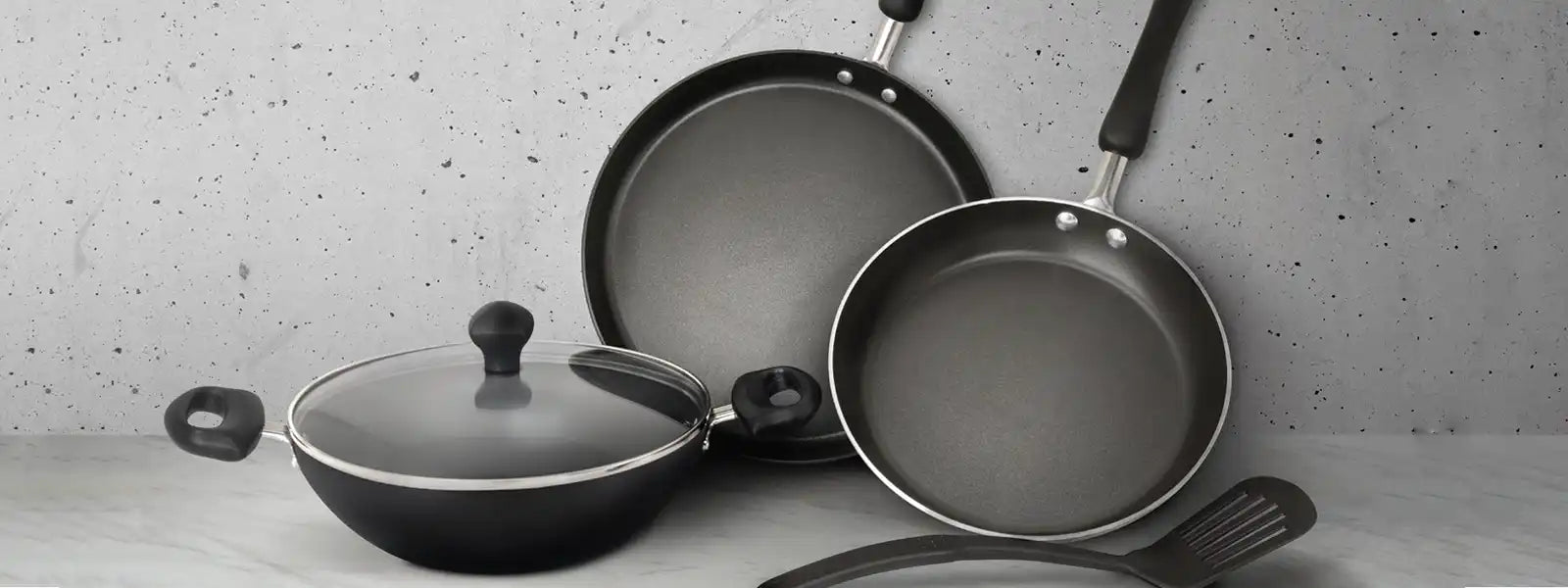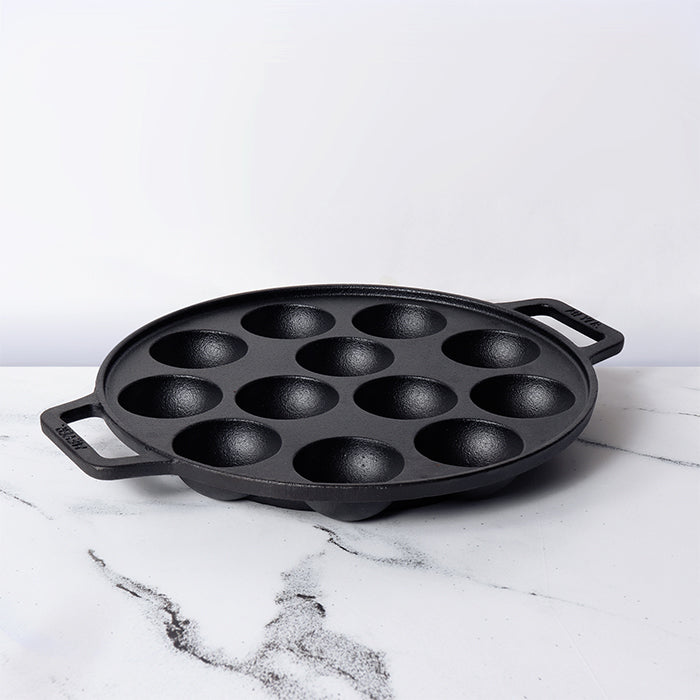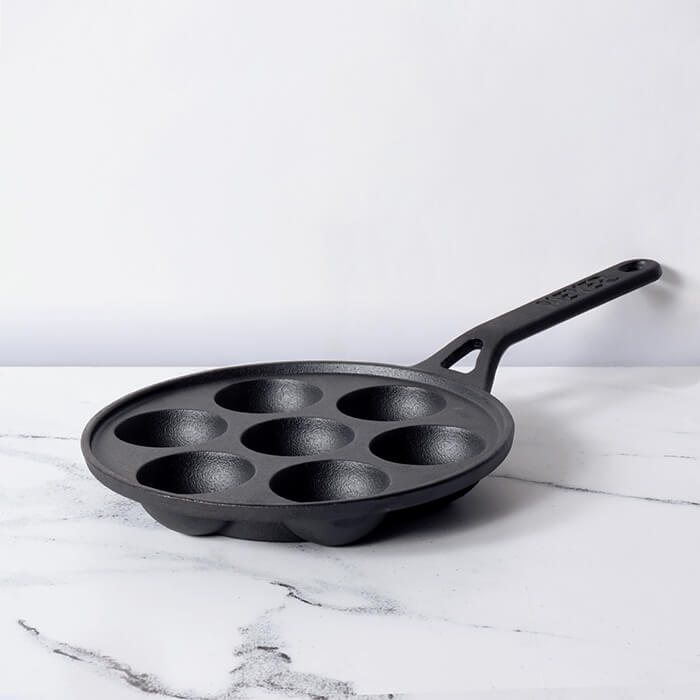Cast iron cookware has been used in India for centuries, and its use in traditional South Indian cooking predates modern non-stick cookware by a long time. The enduring presence of cast iron appam pans in South Indian kitchens reflects the region's historical cooking practices. An iron appam pan plays a significant role in the preparation of various traditional South Indian dishes, with appams being one of the most iconic examples.
Table of Contents
Iron Appam Maker Is A Part Of Heritage and Tradition:
Cast iron appam makers have been used for generations in South Indian households. They are a symbol of culinary heritage and are often passed down from one generation to the next, carrying with them the flavors and techniques of traditional South Indian cooking. The preparation of South Indian dishes like appams often involves time-honored techniques and recipes passed down through generations. Cast iron appam pans are a tangible link to this cultural heritage, preserving the methods and flavors of the past.
Iron Appam Maker Imparts Authentic Taste:
The use of cast iron imparts a unique flavor to South Indian dishes, enhancing their authenticity. When you cook appams or other South Indian dishes in a cast iron appam pan, it retains and disperses heat evenly, allowing the flavors of the ingredients to develop and meld harmoniously. This distinct flavor is highly valued by those who appreciate the genuine taste of regional cuisine.
Iron Appam Maker Gives Right Texture and Technique:
Achieving the perfect texture of crispy edges and a soft center in appams requires specific cooking techniques, and cast iron appam makers are designed to facilitate these techniques effectively. The excellent heat retention and natural non-stick properties of cast iron are essential for creating this beloved South Indian delicacy.
The outer edges of appams are meant to be crispy and slightly caramelized. The high heat conductivity of cast iron allows these edges to brown evenly and develop that desired crispiness. In contrast to the crispy edges, the center of an appam should be soft and fluffy. The heat retention of cast iron ensures that the center continues to cook gently even after the edges have crisped up, resulting in the soft, pillowy texture that appams are known for.
Iron Appam Maker Improves Culinary Bond:
The process of seasoning and maintaining cast iron appam makers is often a shared family tradition. It fosters a sense of connection and bonding among family members, as knowledge and techniques are passed down from elders to the younger generation.
In South Indian households and restaurants alike, an iron appam maker is much more than a piece of cookware—it's a vessel that carries the rich cultural and culinary heritage of the region. It represents the time-honored traditions, flavors, and techniques that make South Indian cuisine so beloved and cherished











Leave a comment